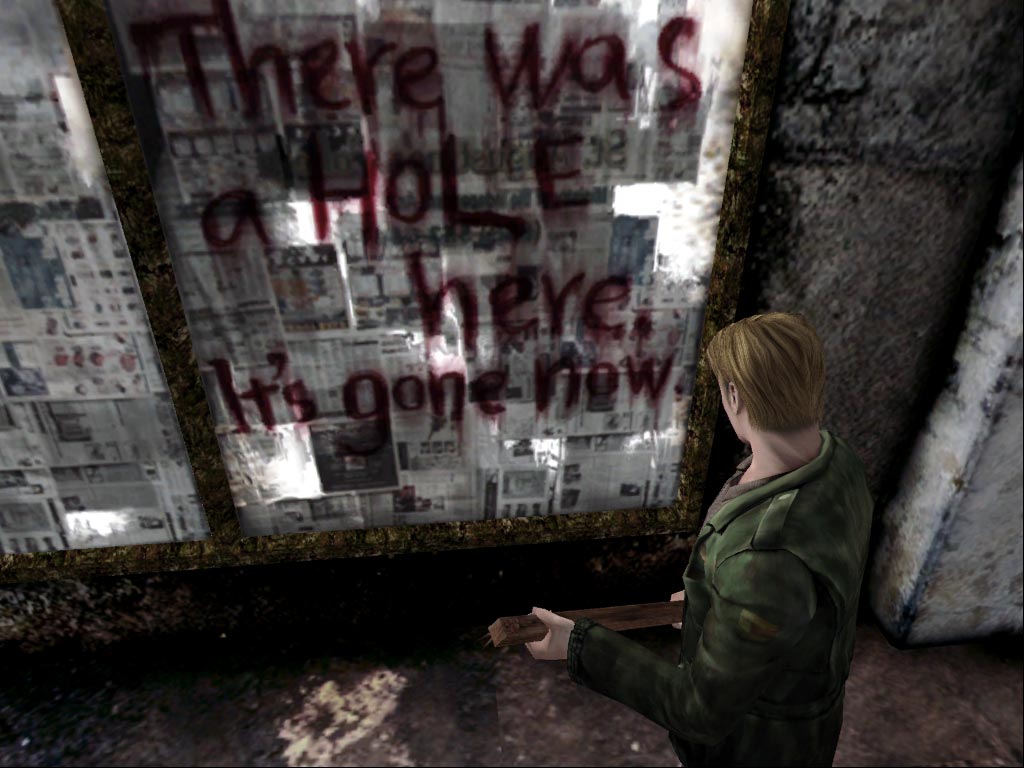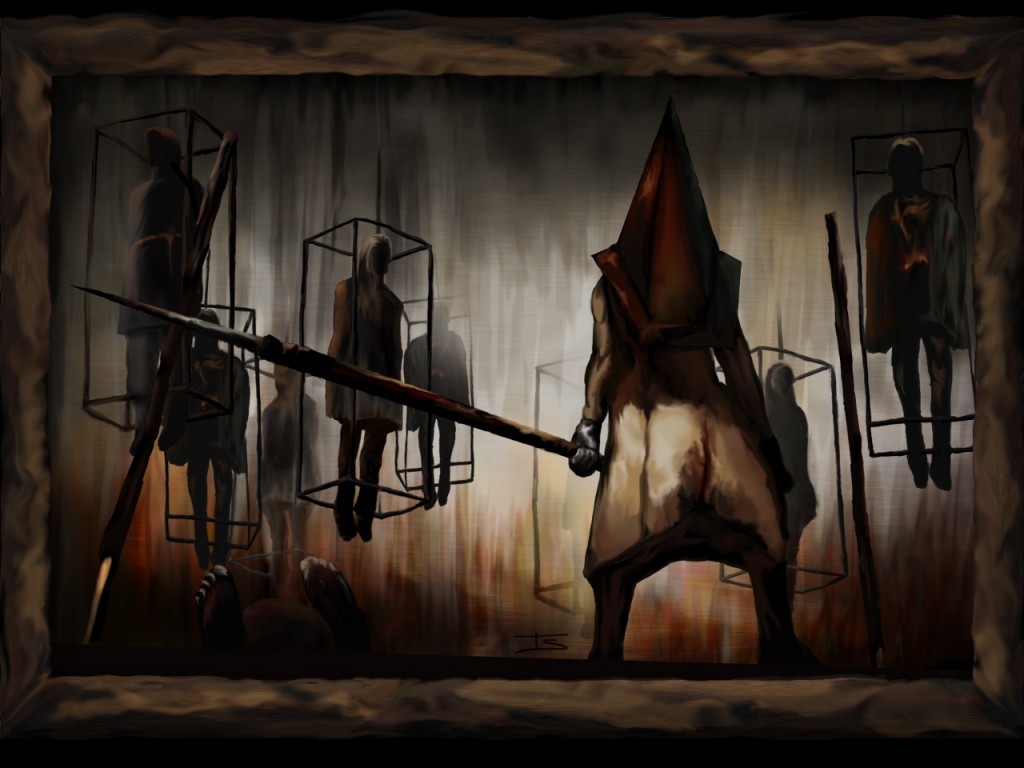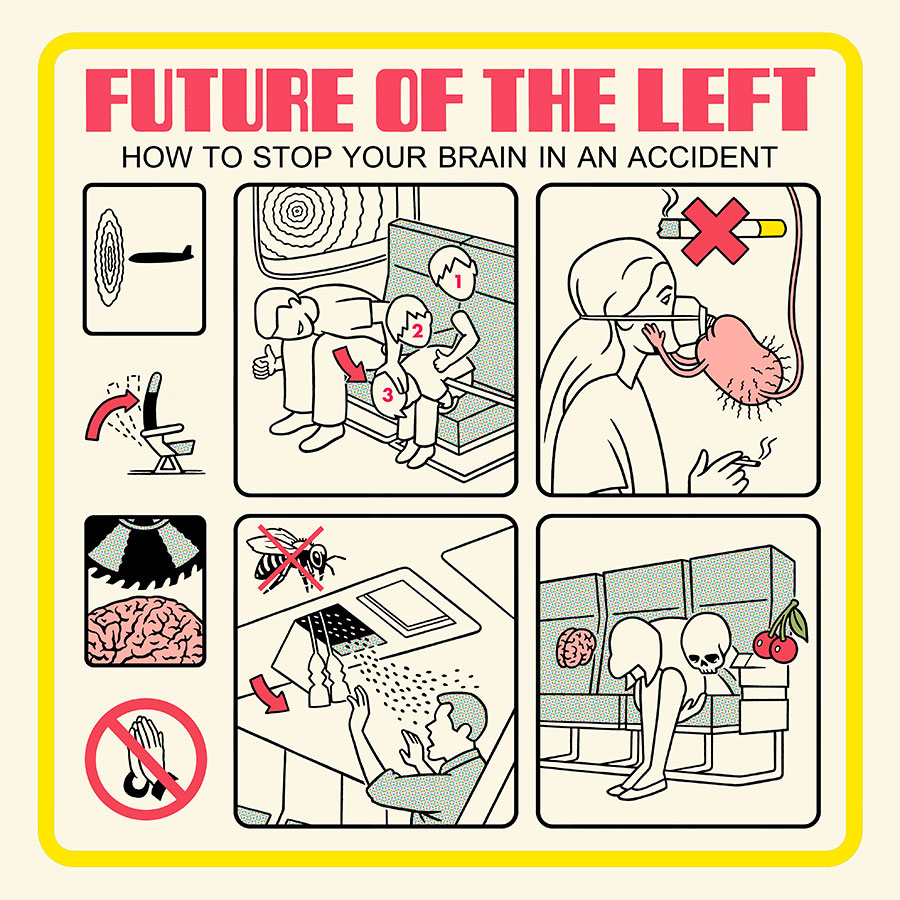Silent Hill 2 is a masterpiece. It’s not a masterpiece in the traditional sense, where every aspect of the work is perfect. It’s a masterpiece in the sense that, despite being fundamentally broken in many ways, it still feels like a brutal, cohesive, human experience. Silent Hill 2 is not perfect – but it’s alive.
This sequel is, for all intents and purposes, a reboot. Removing the B-movie cult storyline that the original was based on, Silent Hill 2 unshackles itself from the continuity of the franchise. The foggy town of Silent Hill is no longer the manifestation of tortured young girl, desperate to take revenge on humanity for stealing her childhood – it has been reimagined as a more personal hell, specifically designed for each person that is unfortunate enough to pay the town a visit.
Modern horror games, such as Dead Space and Amnesia: The Dark Descent, are based on visceral horror. They focus on sheer terror, and the feeling of helplessness above all – the player feels like a helpless animal, chased down by prey. Silent Hill 2 is successful at this, but this is not where its true strength lies. The true power of Silent Hill 2 lies in the fact that it is deeply tragic.
Every element of the game, despite being quite terrifying, is infused with an overwhelming sense of sadness, the feeling of being unable to take back something that has already been said. The unusual camera angles add to the dream-like, Lynchian atmosphere, which greatly amplify the emotional aspect of the events that occur. The moody soundtrack, the almost ridiculously slow delivery of the lines, the sometimes absurdist dialogue spoken by the broken people that inhabit this world – all of these things make Silent Hill 2 feel unnerving and depressing in a way that only a surreal nightmare would.
I’m not going to go into the details of the plot. The now iconic plot twist is a master class in storytelling, a gut-punch that makes you view everything you had experienced in a different light. Going into the story spoiler-free is a must. What I will say is that the monsters that you fight, disturbing as they may be, take on a totally different meaning towards the end. The symbolism of their sickening design becomes clear, particularly in terms of Pyramid Head (below), who is one of the greatest villains in video game history.
As I mentioned before, Silent Hill 2 is broken in many ways. The controls are terrible, the puzzles are archaic and obtuse, some of the dialogue is laughably bad. But, in a way, these imperfections make it seem all the more surreal. Subsequent games dropped the psychological aspect in favour of the cult storyline, and while some of them were simply of a higher quality in terms of plot and gameplay (Shattered Memories is my second favourite in the franchise, possibly due to a return to the psychological aspect), none of them managed to retain the sick, depraved feeling that lies at the core of Silent Hill 2.
My favourite moment in the game occurs when the protagonist meets a character named Angela on a staircase. The stairs are engulfed in flames, and Angela walks slowly towards the protagonist, thinking that he is her mother. Realising that this is not the case, she retreats back up the stairs, with the words: ‘You see [the flames] too? For me, it’s always like this’. The hell of guilt is a different place for each person, be it a roasting fire or a grimy hotel room. It is this message at the heart of the game that makes it truly special. Vladimir Rakhmanin






